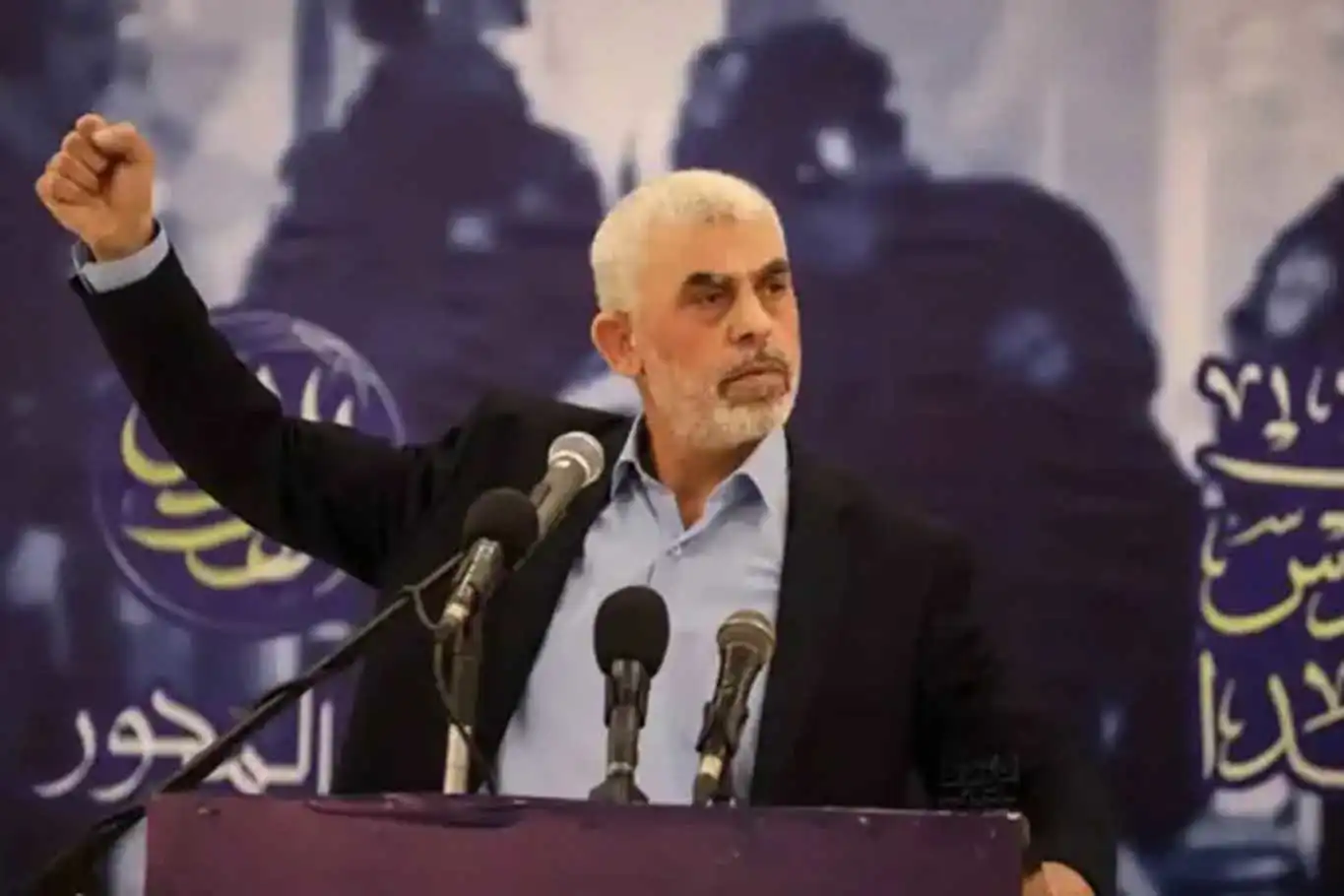Yahya Sinwar: Martyrdom on the frontlines of Gaza’s struggle


The martyrdom of Hamas leader Yahya Sinwar, announced on Friday, marks a significant moment in the ongoing Palestinian resistance against the Israeli occupation.
A key figure in Hamas and the mastermind behind Operation Al-Aqsa Flood, Sinwar’s life and sacrifice reflect a deep commitment to the liberation of Palestine, challenging the narrative of an occupied people and their right to resist. His death on the battlefield, despite his leadership position, underscores his belief in leading by example, rejecting the notion of safety while his people endure violence and oppression.
For 18 days, Sinwar fought alongside his comrades in Gaza, standing firm in Rafah against the onslaught of Israeli occupation forces. Contrary to Israeli claims that Sinwar was hiding in tunnels or using captives as human shields, he was in a house with other resistance fighters, fully prepared to defend his homeland. Donning military gear and an assault rifle, he embodied the spirit of a leader who refused to retreat or evade the dangers his people face daily. His presence on the frontlines demonstrated his conviction that leadership is not about issuing commands from afar but fighting side by side with his people.
As the battle that claimed his life intensified, Sinwar, despite being advised to stay off the battlefield, chose to engage in combat. His comrades, seeking to protect him, attempted to divert Israeli forces, but Sinwar stayed, determined to resist to the very end. In the final moments before an Israeli drone struck, Sinwar wrapped his face with a Kouffiyeh to avoid recognition by artificial intelligence, a symbolic gesture that spoke to his resistance even in the face of advanced technology. He faced death not with modern weaponry but with a simple stick, a testament to his courage and defiance, moments before the final bombardment took his life.
Sinwar's martyrdom is not merely a personal loss; it symbolizes the resilience of the Palestinian struggle against decades of occupation. His leadership in Operation Al-Aqsa Flood and his decision to fight on the frontlines serve as a powerful message that the Palestinian people, and their leaders, are committed to resisting the occupation no matter the cost. The Israeli narrative of Hamas leaders hiding behind civilians is shattered by Sinwar’s actions, revealing the truth of his sacrifice and the lengths to which he, and many others, have gone to defend their homeland.
Hamas, now faced with the task of selecting a new leader, remains steadfast in its commitment to resisting Israeli aggression. The movement is already considering its next steps, with several possibilities for succession. Khaled Meshaal, Hamas' acting leader, and Khalil al-Hayya, deputy head of the political office, are potential candidates to take over the leadership. Another option under consideration is the formation of a special committee to lead until the ongoing war on Gaza concludes. Alternatively, Hamas may choose a leader whose identity will remain undisclosed for security reasons. Regardless of the decision, Hamas' mission remains unshaken: to resist occupation and stand firm against efforts to displace the Palestinian people.
As senior Hamas official Sami Abu Zuhri affirmed, the path for the Palestinian people remains clear: resistance, resilience, and an unwavering dedication to the liberation of their land. The spirit of Yahya Sinwar will live on in the hearts of those who continue to fight for freedom, independence, and the right of return for all Palestinians. His martyrdom serves as both a call to action and a reminder of the sacrifices made in the pursuit of justice, liberation, and dignity. (ILKHA)
LEGAL WARNING: All rights of the published news, photos and videos are reserved by İlke Haber Ajansı Basın Yayın San. Trade A.Ş. Under no circumstances can all or part of the news, photos and videos be used without a written contract or subscription.
The European Union is grappling with an unprecedented escalation in drug trafficking, with officials estimating that over 100 tons of cocaine enter the continent each year—a figure that European security agencies admit may represent only a fraction of the true scale.
On November 2, 1917, British Foreign Secretary Arthur James Balfour sent a short letter to Zionist leader Lord Rothschild, pledging Britain’s support for a Jewish homeland in Palestine.
One year has passed since Yahya Sinwar, the legendary leader of Hamas in the Gaza Strip, was martyred in a direct confrontation with Israeli forces in Rafah.
Two years have passed since the morning that forever altered the course of the Palestinian struggle — the dawn of October 7, 2023, when the besieged enclave of Gaza broke through its prison walls in a thunderous uprising now etched into history as Operation Al-Aqsa Flood.